Students go into the lab to practice botanical alchemy
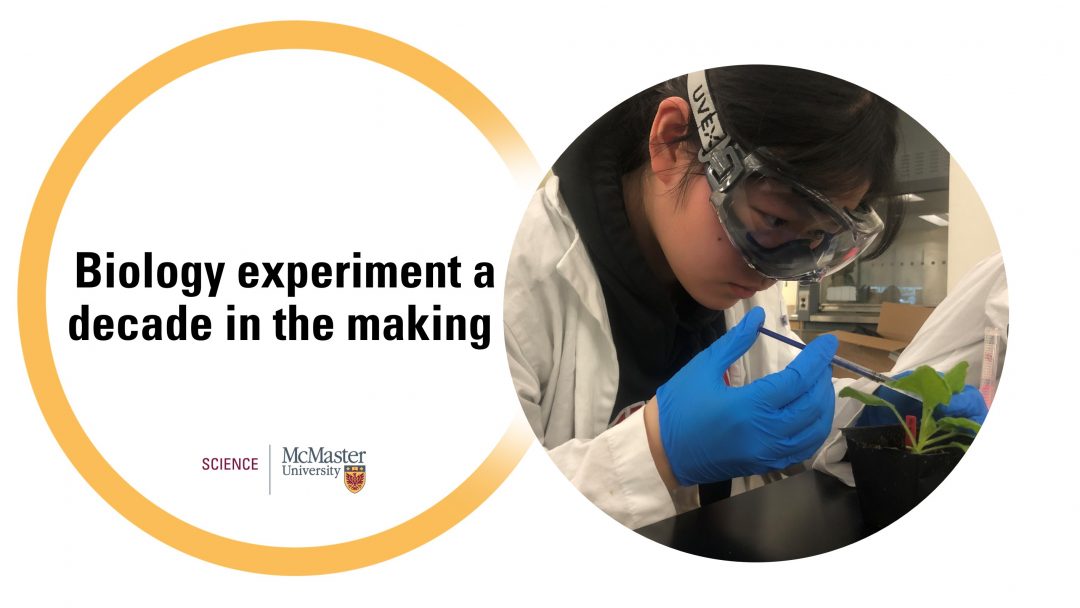
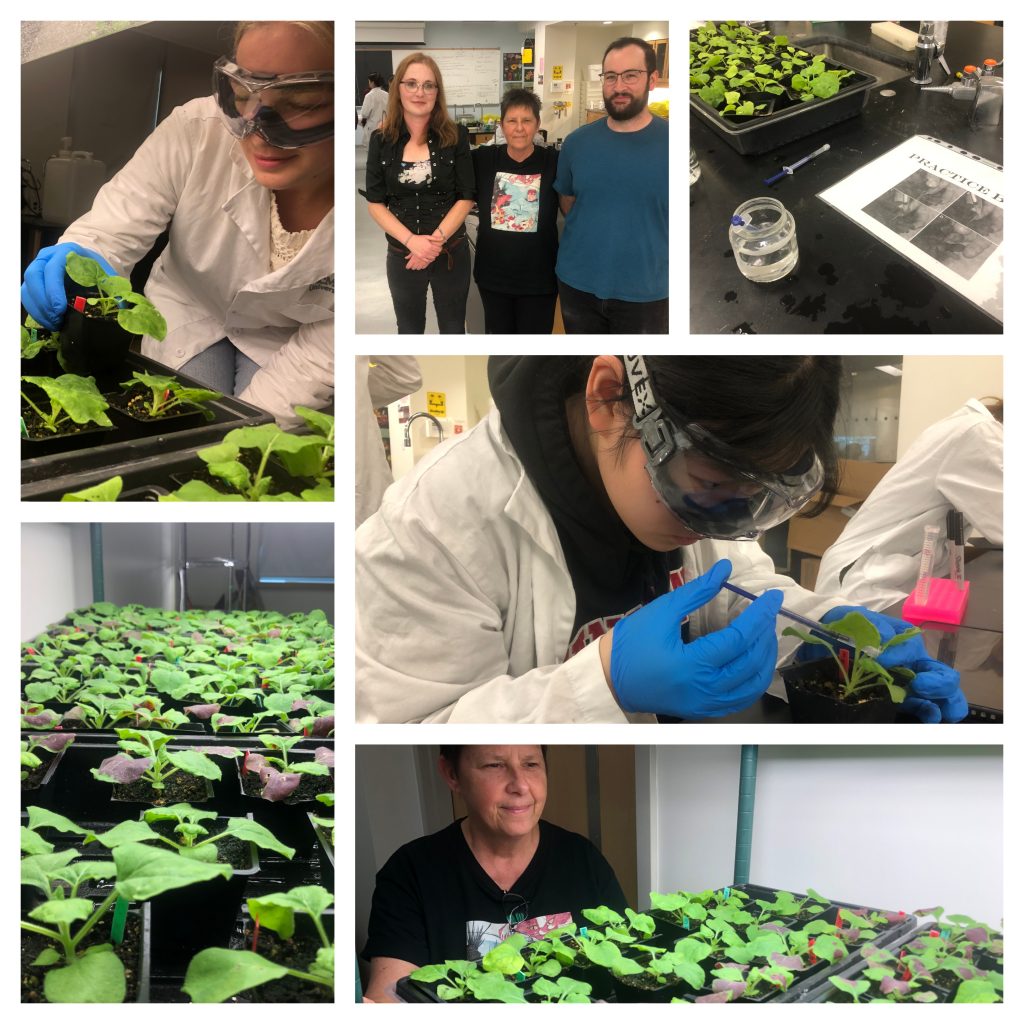 It’s a two-week experiment that was more than a decade in the making.
It’s a two-week experiment that was more than a decade in the making.
McMaster University Biology Professor Robin Cameron had long wanted students in her Plant Biodiversity and Biotechnology (Bio 2D03) course to learn first-hand how plants can be used to create vaccines.
The idea of using plants as a faster and cheaper way to mass produce vaccines or therapeutic antibodies has been around since transgenic corn, soybean and canola plants were first grown commercially in North America starting in 1996.
“Not everything that I teach in class can be illustrated in a lab,” says Robin. “But this was a concept and technique that I really wanted to bring to life for my students. I wanted them to learn about it in class and then try it for themselves in the lab.”
How to make that happen was the challenge. Robin wasn’t sure how to run the experiment for more than 100 students in a three-hour lab with only two undergraduate fluorescence microscopes on hand. Students would need to put the plants under the microscopes to view the expressed fluorescent reporter protein that would represent the vaccine.
But then Robin came across a journal article about visible reporter genes. Instead of expressing a protein that requires a fluorescent microscope, plants could express enzymes from beets. This would produce a pigment that students could easily see without a microscope.
Just like during vaccine production in plants, students used the natural genetic engineer Agrobacterium to inject the genes for the beet enzyme into plant cells. Those genes then produced beet pigments that changed the colour of the plants’ leaves.
Robin worked with graduate student Garrett Nunn and postdoctoral fellow Fathy Elgebaly, PhD to test the system. Technician Colleen Murphy and instructional assistant Scott Hughes then worked out the experiment for more than 100 students over the course of two weeks in the Argo Lab in the Burke Science Building. “Colleen and Scott were a huge help in making this experiment possible, says Robin.
Robin hopes the lectures and hands-on lab experiments in Bio2D03 will inspire students to consider a career in plant biology and agriculture. “We need to feed the world and that’s becoming more and more of a challenge because of the climate change.”
Faculty, Research excellence, UncategorizedRelated News
News Listing
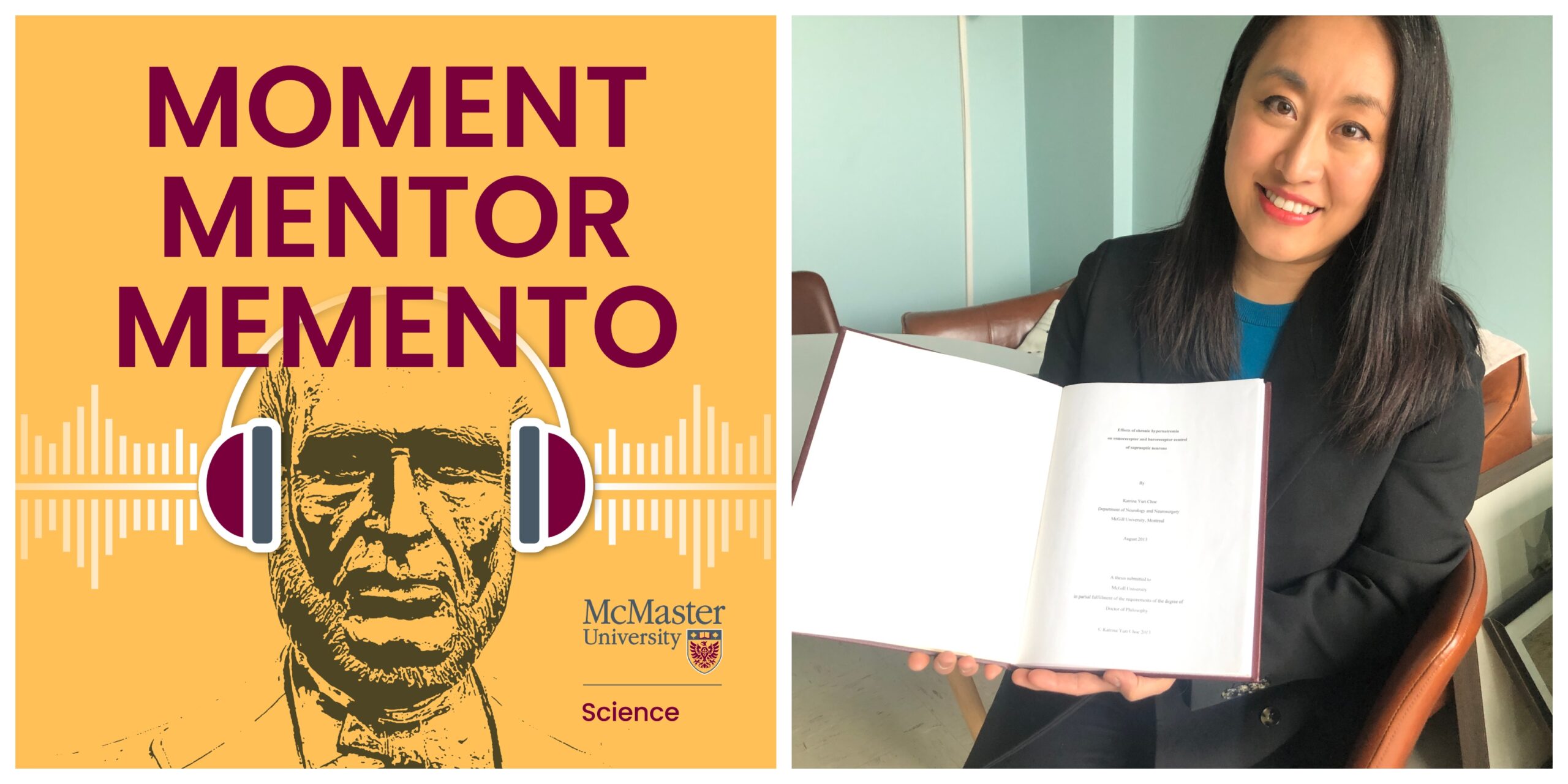
Moment Mentor Memento podcast ep. 11 with Katrina Choe
Podcast, Research excellence, Uncategorized
2 days ago
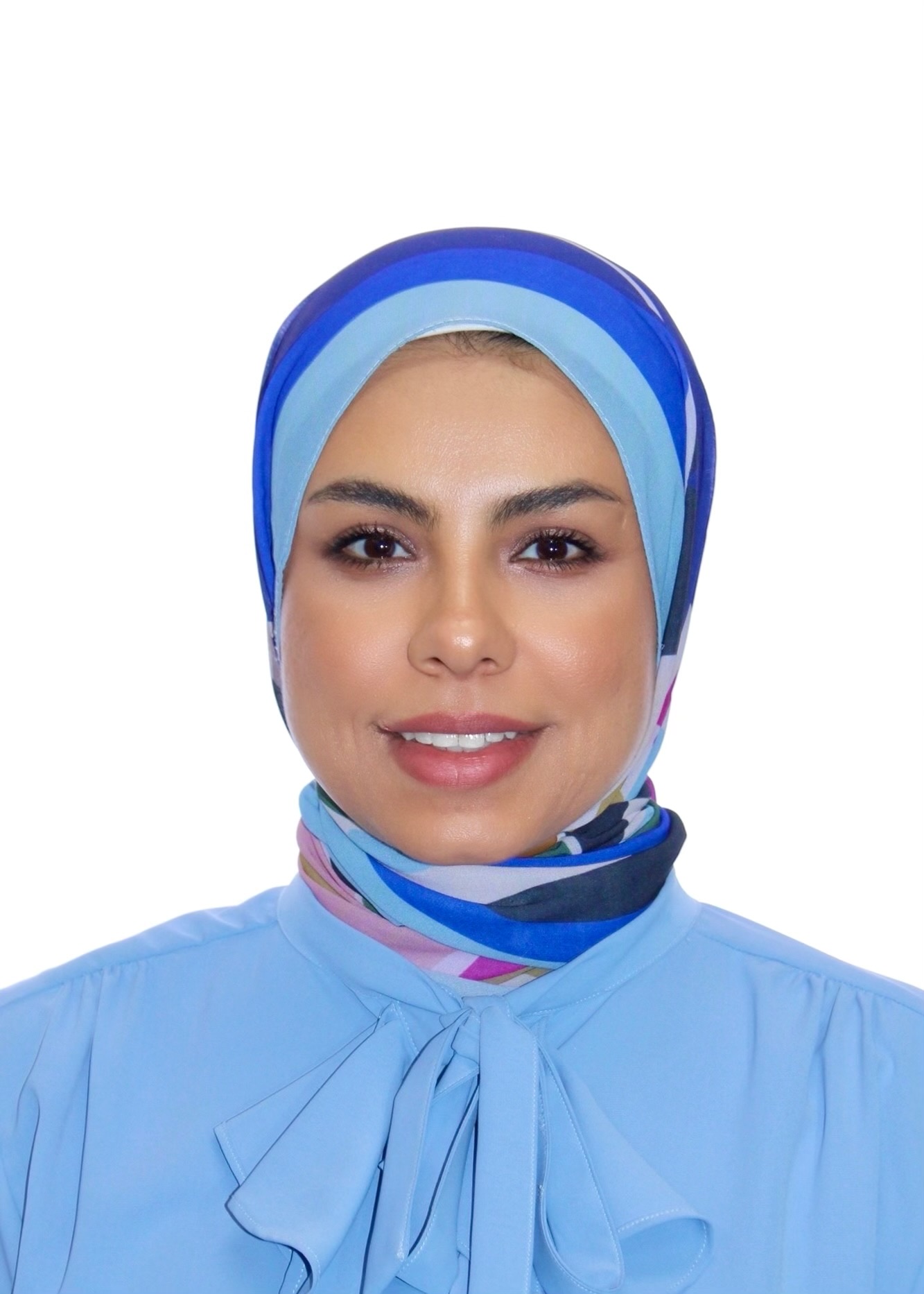
PhD graduate an emerging leader and role model in responsible artificial intelligence diagnostics
Grads to watch, PhD student, Research excellence
1 week ago
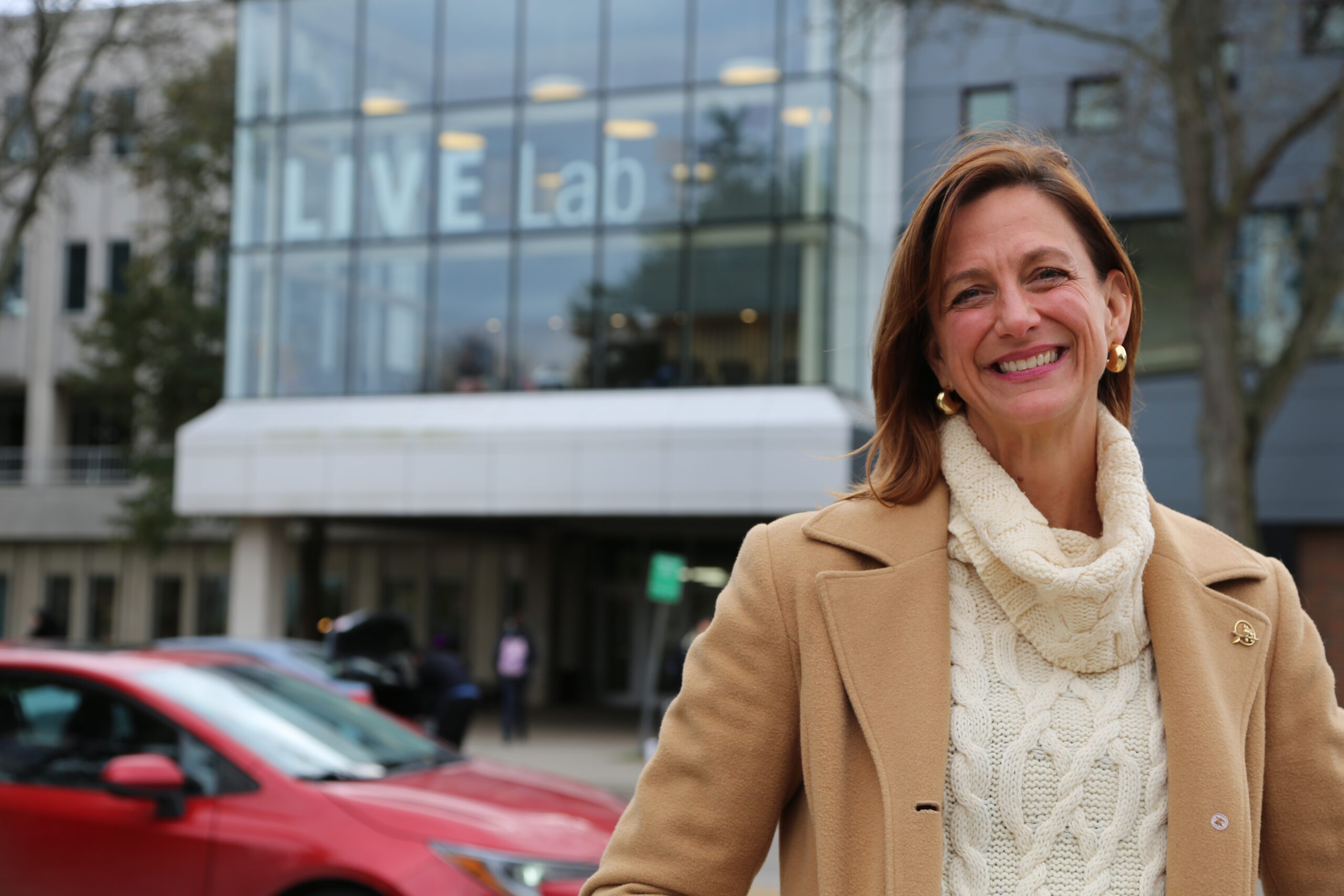
PhD graduate makes the case for offering music therapy to stressed students- “put the broccoli in the brownie”
Grads to watch, PhD student, Research excellence
November 14, 2024
